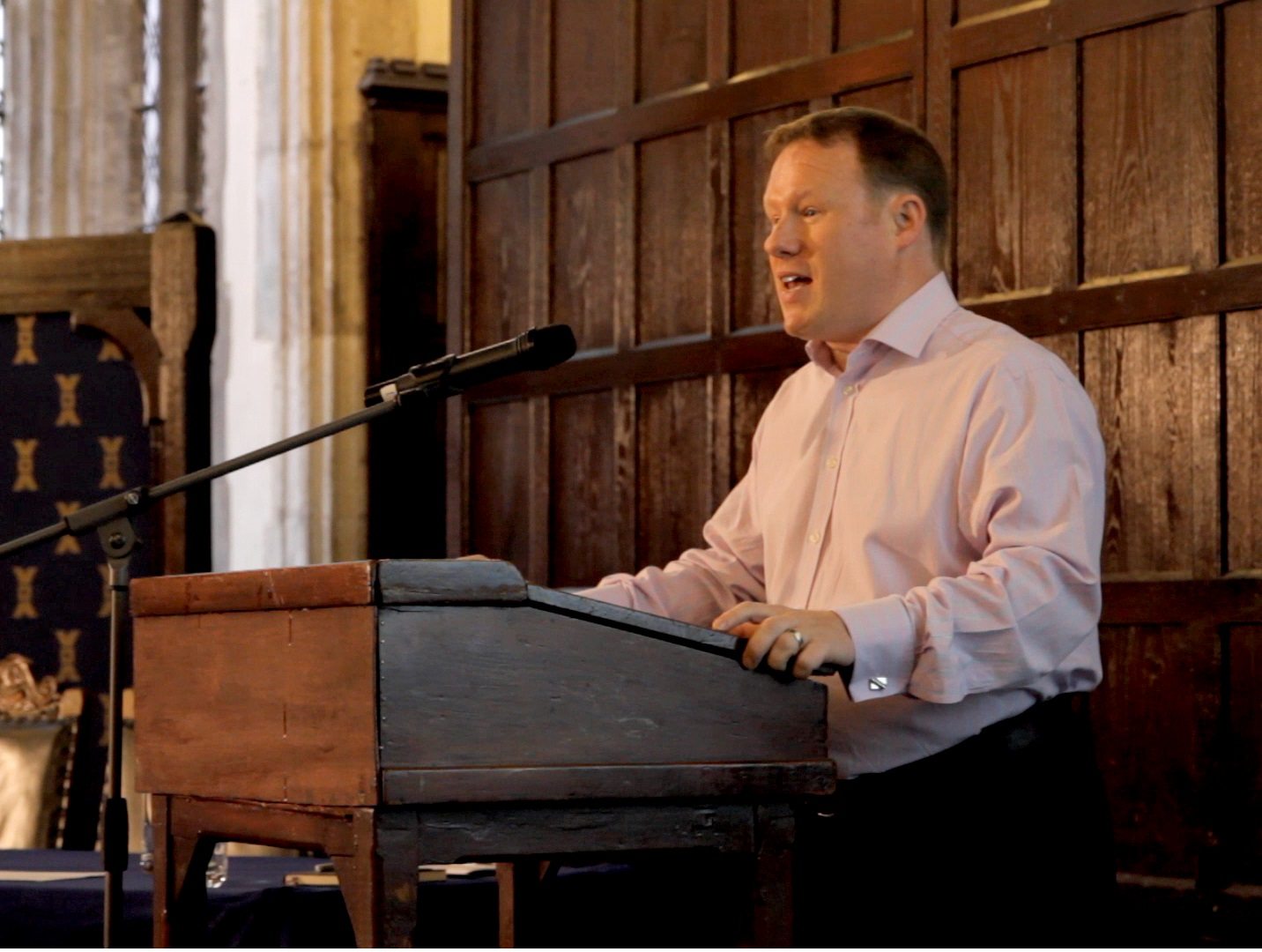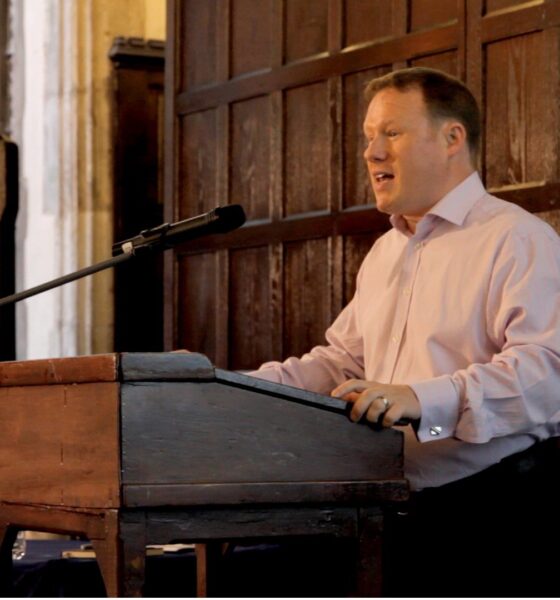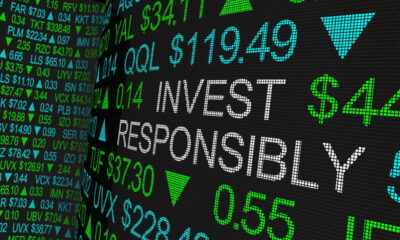

Economy
Ethical investment pioneer: Simon Leadbetter, Blue & Green Tomorrow
It’s the final day of National Ethical Investment Week, and therefore the last in Greenhouse PR‘s ethical investment pioneers series. In the interview seat to round things off is Blue & Green Tomorrow’s founder and publisher Simon Leadbetter.
Previous interviewees in the series include: UKSIF chief executive Simon Howard, Sebastian Parsons of Stockwood Community Benefit Society, Paul Ellis of Ecology Building Society, James Vaccaro of Triodos Bank, Claudia Quiroz of Quilter Cheviot, John Ditchfield of Barchester Green, Clare Brook of WHEB Asset Management and Mark Hoskin of Holden & Partners.
Tell us, in 20 words or fewer, about Blue & Green Tomorrow. What’s your mission?
Investment shapes our future more than anything else. We encourage people to invest in, and buy from, companies that are sustainable.
What motivates you to do what you do?
My initial motivation was the realisation that investment (my previous industry) was doing something profoundly wrong to our planet. Securing short-term profits, regardless of the long-term impacts on the environment and society, was untenable.
My children, William (three) and Sebastian (one), added greater urgency. My generation and the ones preceding will leave a terrible legacy for our children. How could I look them in the eye, when they are older, and say I had the choice and did nothing?
What are the biggest challenges in building momentum for ethical finance?
The name ethical finance has different connotations for people and harks back to the roots of the sector in the abolitionist and negative screening, of which we are rightly proud. Sustainable, responsible, socially responsible or impact investment better convey what the sector is about today.
That said, whatever we call the space, all of those involved in it need to be much more vocal in championing the economic, societal and environmental benefits of this investment strategy. And it is not about being purist. Just 10% of a portfolio invested sustainably to mitigate against the risks of population growth, pollution, resource scarcity and biodiversity loss is a smart and sensible diversification.
People don’t need to compromise their values to secure substantial investment income and growth. They certainly don’t need to compromise their children’s future to do so, either.
What trends or developments are you most excited about in sustainable and ethical investment?
The sector’s clear growth and increasing interest from governments, institutions, NGOs, intermediaries and individuals. A new generation of environmentally-conscious, digitally connected investors is just beginning to invest significant sums. To them, environmental protection and human rights are the norm.
At a click of a mouse they can see what is going on in far flung places and se who are the culprits for environmental and social harm. Sustainable investment was a niche to previous generations of investors – it will be the norm for future investors. This is where smart investment and sensible capital is going.
What one thing could change the future of finance?
Greater taxation on, and stricter regulation of, the polluters, the resource inefficient and the human rights abusers. The free market is exceptional at delivering what people need and has lifted more people out of poverty than any other economic system, but even Friedrich Hayek recognised the limits of the market in addressing and pricing externalities (pollution and harm).
If the father of modern classical liberal economics can see the value of state intervention in correcting this flaw, classical liberal investors and governments should do so too, even if they believe in unfettered markets more generally.
We use tax and regulation to discourage individually harmful activities such as smoking and drinking. It’s also a valuable source of tax revenue for austerity governments. Surely we should use tax and regulation to discourage activities that self-evidently harm our planet and its people.
Where do you want to take Blue & Green Tomorrow next?
I’m keen to expand our reach in the UK, but also globally. Securing correspondents in America, Africa and Asia would give us a voice on the frontline of sustainable investment and climate change.
What can we, as individuals, do to make a difference?
Move your money. All the energy-saving light bulbs, electric cars, environmentally-friendly products and recycling is for nothing if your savings and investments are investing in oil, gas and mining. It’s really easy to find out where to put your money, or where not to put your money, at YourEthicalMoney.org.
If you were prime minister for a day, what would be the first thing you’d do?
Direct all the money that we plan to spend on Trident (£100 billion) at developing renewable energy. Investing in cold war weapons to defend against a threat that does not exist, rather than developing domestic energy security and mitigating the clear and present danger of climate change, is delusional and irresponsible.
What’s the coolest project or product you’ve come across, and inspired you?
This is going to sound odd but windmills and watermills are cool. Ever since I saw my first watermill as a child and made one out of cardboard (not a great material to use for a watermill, I’ll confess) I remain amazed by how a tiny volume of water can create so much power. I can’t pass running water now without thinking, there’s a waste of energy…
Can you recommend a life- or game-changing book for our readers?
Life Inc. by Douglas Rushkoff. It clearly articulates why we’re in the economic mess we’re in. I read it at a youth hostel in New Zealand in 2010, shortly after reading The Corporation, and it pushed me a long a journey to work towards understanding sustainability.
What’s the best advice you’ve ever been given?
Seek forgiveness, not permission – and never be afraid to be fired.
Can you leave us with who’d be your eco hero?
Juliet Davenport – CEO of Good Energy.
National Ethical Investment Week 2013 runs from October 13-19. Join the debate on Twitter using the hashtag #moneydoinggood.
Further reading:
‘Positive’ investment worth £1.6bn in the UK
63% of UK investors want to be offered sustainable investment options
£11 billion invested ethically in the UK: infographic analysis
Survey: environmental issues concern ethical investors the most


 Environment12 months ago
Environment12 months agoAre Polymer Banknotes: an Eco-Friendly Trend or a Groundswell?

 Features11 months ago
Features11 months agoEco-Friendly Cryptocurrencies: Sustainable Investment Choices

 Features12 months ago
Features12 months agoEco-Friendly Crypto Traders Must Find the Right Exchange

 Energy11 months ago
Energy11 months agoThe Growing Role of Solar Panels in Ireland’s Energy Future





























